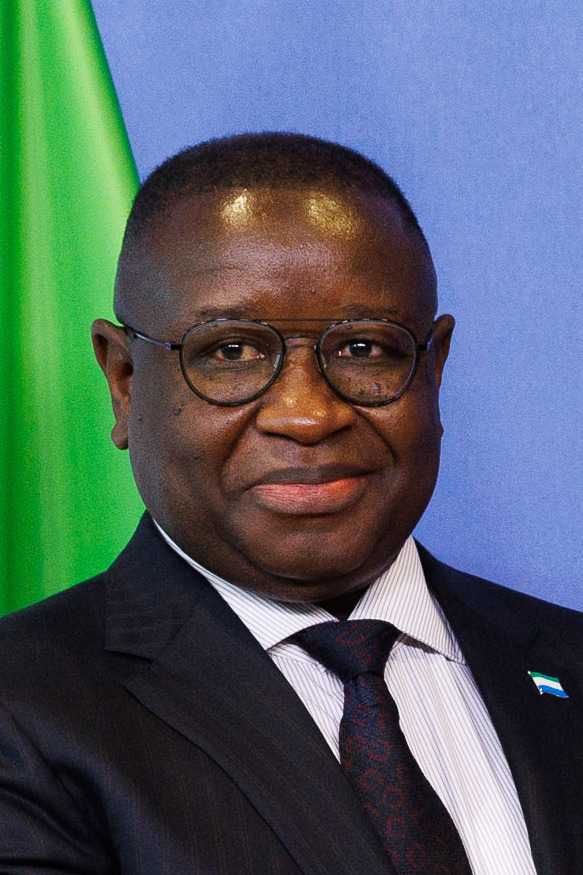African leaders are “working to bring pressure” on Russia’s Vladimir Putin and others to end the war in Ukraine that has caused a cost of living crisis on much of their continent, according to the president of Sierra Leone.
Julius Maada Bio, who is seeking re-election this month, said Africa “always suffers disproportionately” during global crises, from wars to epidemics, but it was often ignored because “our voice has not been strong enough to stop what’s happening out there”.
Speaking on the eve of a high-profile peace mission by a group of African leaders to Moscow and Kyiv this week, Bio said: “We’re working to bring pressure to bear on President Putin and all those concerned so the war can come to an end, so we can live peacefully.”
Many nations rely on food imports, but few are as dependent as Sierra Leone, which has to buy in almost everything its 8.4mn citizens consume. The country ranks 112th of 121 countries on the Global Hunger Index compiled by a group of European NGOs, making it one of the world’s most food insecure nations.
The leaders of South Africa, Egypt, Senegal, Zambia, Uganda and the Republic of Congo will travel to Kyiv to meet Ukrainian president Volodymyr Zelenskyy on Friday, and then to Moscow the following day for talks with Putin.
The exact topics that will be discussed are unclear but Jean-Yves Ollivier, the veteran French middleman who helped broker the trip, has said the talks would focus on freeing up exports of Russian fertiliser and Ukrainian grain that the continent has come to rely on.
“War is never good for anyone — there’s destruction and lives are being lost, and it’s affecting the economies of different countries and the global economy,” Bio told the Financial Times from Freetown, capital of the west African nation. “All we hope for is that the powers that be understand what impact the situation is having on us.”
The former army brigadier, 59, who has been in power since 2018, has good reasons to want the Ukraine war to end. Economic concerns stemming from the conflict have dominated the election campaign ahead of the June 24 vote.
Bio, who seized power as military leader for a short time in the 1990s amid the ruinous civil war that ended in 2002, is facing a robust challenge from Samura Kamara, a former finance and foreign affairs minister. It is a rerun of a contest that Bio won in a second-round vote run-off five years ago.
Annual inflation in Sierra Leone surged to 43 per cent in April driven by soaring food costs. Its economy, which is heavily reliant on commodities, particularly iron ore, was reeling from “successive external shocks” even before Russia’s full invasion of Ukraine last year, according to the IMF. The fund forecasts Sierra Leone’s growth at 2.7 per cent this year, from 3.6 per cent in 2022.
The country was already dealing with the after-effects of an Ebola outbreak that killed thousands of people over three years and the coronavirus pandemic, as well as the commodity prices crash.
Many ordinary Sierra Leoneans blame Bio’s government for the country’s predicament, although he has insisted the inflation issue was “imported”. This also explained why his initiatives, including waivers for import duties on essentials such as rice and flour, have had a negligible impact, he said.
Import costs have also risen because the Leone has lost almost a fifth of its value against the US dollar this year. Central bank efforts to curb inflation have included re-denominating the currency by cutting three zeroes from the notes, although the slide in its value and the fact that the old and new notes circulate side-by-side suggests limited success.
Frustrations have erupted into street protests, notably in August when 21 civilians and six police officers were killed. Bio called this an insurrection effort engineered by the opposition. Kamara, the opposition leader, has rejected this version of events and also said his supporters were recently attacked on the campaign trail.
Source: Financial Times






